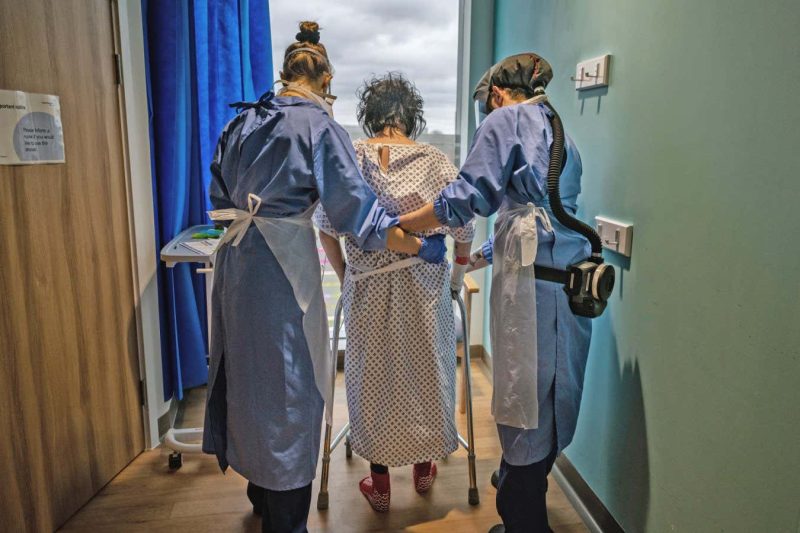Someone with covid-19 at the Royal Papworth Hospital in Cambridge, UK, in January 2021
Lynsey Addario/Getty Images
In the midst of the worst surge of covid-19 deaths of the pandemic, hospitals in England were facing the challenge of containing the spread of the SARS-CoV-2 coronavirus within their walls. A comprehensive analysis of the problem has confirmed that virus transmission was indeed happening at an alarming scale. The study found that up to 1 in 50 people admitted to hospitals during England’s second wave of the virus caught it there. This raises concerns about the adequacy of current measures being taken to prevent the spread of COVID-19 in hospitals.
The study, conducted by Ben Cooper and his colleagues at the University of Oxford, analyzed covid-19 cases from 365 hospitals in England between June 2020 and March 2021. They classified people as having definitely or probably caught the virus in the hospital if they tested positive after being in the hospital for more than seven days. After adjusting for missed cases, the team estimated that between 1 and 2 percent of people admitted to hospitals in England during this period contracted the virus within the hospital.
Notably, not all hospitals experienced the same level of transmission. The study found a correlation between higher bed density, lower ceilings, and fewer single rooms with increased likelihood of virus transmission. While rebuilding hospitals overnight is not feasible, the study highlights the importance of reducing airborne spread through measures like air filtering machines. However, it is important to consider population immunity and competing resource priorities when implementing stricter precautions.
Some hospitals in England have also faced criticism for advising staff with respiratory symptoms not to get tested for covid-19 unless they work in wards where patients have weakened immune systems. However, implementing stricter testing policies may lead to trade-offs in terms of healthcare capacity and the ability to provide necessary care.
The study emphasizes the need for randomized trials to test interventions like masking and stricter isolation strategies in hospitals. Improving data collection on different hospitals’ strategies can also provide valuable insights into the best course of action for future pandemics.












